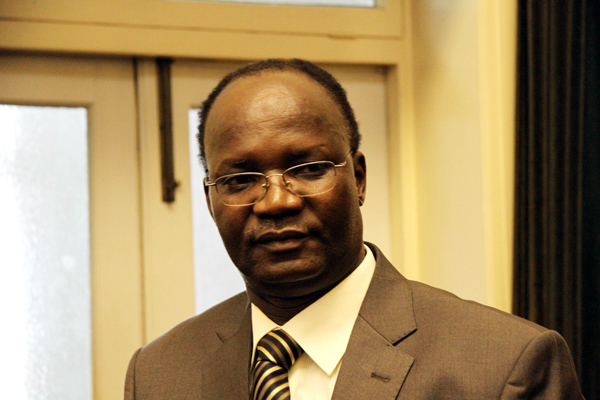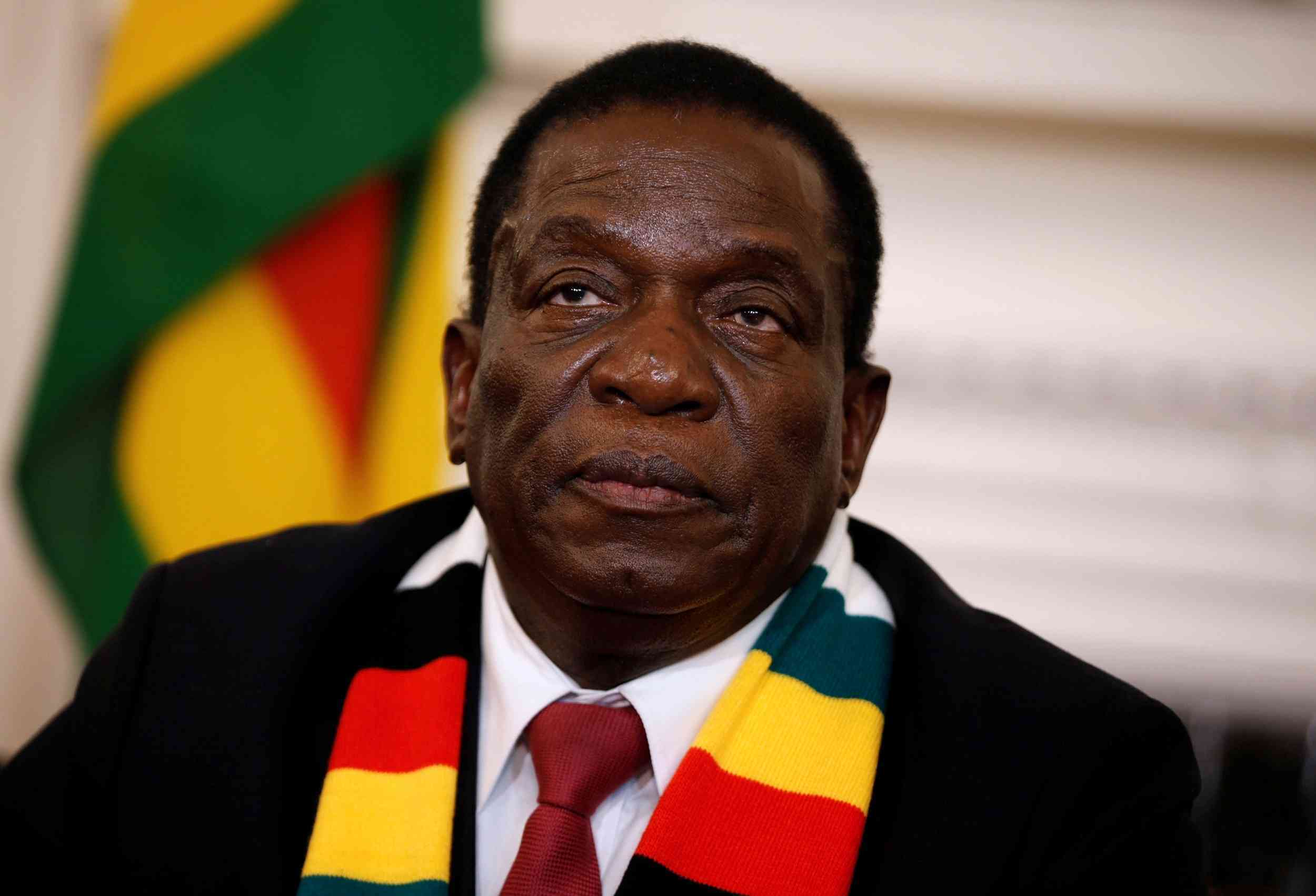
HIGHER and Tertiary Education minister Jonathan Moyo (pictured) has picked a fresh fight with top army bosses, challenging them to account for the missing $15 billion diamond revenue, which President Robert Mugabe has claimed could not be accounted for.
by Everson Mushava/Richard Chidza
Moyo, on Twitter, yesterday challenged Major General Douglas Nyikayaramba to help unravel the mystery surrounding the missing diamond money, after the latter told Parliament on Monday that corruption by senior government officials was a security threat.
“Nyikayaramba said corruption is a major security threat. Unravel and recover missing $15 billion,” Moyo tweeted.
The minister’s statement insinuated that top army officers could know more about the missing revenue, as the military was heavily involved in diamond mining activities in Marange.
Nyikayaramba’s remarks were also widely believed to be aimed at Moyo and members of Zanu PF’s G40 faction, who have been accused of being involved in corruption.
Moyo and his deputy, Godfrey Gandawa, are currently under investigation for allegedly defrauding the Zimbabwe Manpower Development Fund (Zimdef) of over $400 000.
The military has been accused of supporting Team Lacoste, a Zanu PF faction allegedly linked to Vice-President Emmerson Mnangagwa, which has of late been sharpening its daggers against Moyo.
- Chamisa under fire over US$120K donation
- Mavhunga puts DeMbare into Chibuku quarterfinals
- Pension funds bet on Cabora Bassa oilfields
- Councils defy govt fire tender directive
Keep Reading
Both the military and Mnangagwa have repeatedly denied any links to any faction.
Moyo was quizzed on why he was now admitting there was looting in Chiadzwa, yet he claimed Mugabe was misquoted when he disclosed early this year that government could not account for the $15bn diamond revenue.
But Moyo retorted: “. . . agreeing on one specific issue was no pact to agree on everything forever.
“The specific quantum is not known, but that Chiadzwa diamonds were looted big time through rampant corruption is common sense.”
Nyikayaramba’s utterances and Moyo’s defence immediately triggered a Twitter frenzy, with most people saying, while it was good for corruption to be exposed, the army general was least qualified to threaten action, as the military was allegedly heavily involved in the Chiadzwa plunder.
Political analyst, Pedzisai Ruhanya dismissed Nyikayaramba’s utterances, accusing him of siding with Mnangagwa’s faction that is “rubbing its hands in glee over Moyo’s (perceived) Waterloo”.
“Were military activities in Chiadzwa in the presidential election run-off in 2008 not the worst corrupt activities, Nyikayaramba?” he queried.
Political activist, Vivid Gweshe said if Zanu PF factionalism would force the exposure of corrupt activities in the ruling party, it would be a welcome development.
Zimbabwe Liberators’ Platform executive director, Wilson Nharingo said corruption was in Zanu PF’s DNA, and that included the military.
Another political analyst, Simukai Tinhu, said Nyikayaramba’s comments were directed at Mugabe, whom some in the party thought was protecting Moyo.
Nyikayaramba also seemed to be subtly accusing Zanu PF political commissar Saviour Kasukuwere of building a mansion with money he could not account for, although the minister has previously denied those allegations.
Ruhanya argued Moyo and Kasukuwere were the targets of Nyikayaramba’s accusations.
“This is a clear message to the G40 faction leadership equivalent to the infamous ‘straitjacket’ statement issued by the military in the run-up to the 2002 elections,” he said.
“The difference is that in 2002, the message was meant for the opposition. This is aimed at internal enemies. Elite incoherence in the apparatus of the State is undesirable and the issue of the military dabbling in civilian affairs is not only unconstitutional, but dangerous.”
Ruhanya said the military remained an ace in the pack for Mnangagwa and those associated with the liberation struggle in the succession dog-fight.
“The military factor in the Zanu PF succession conundrum will be decisive. One thing for sure is that it will be naïve for us to see the Zimbabwean army as an ordinary military comprised of professional soldiers. These are people who operated as the Zanu commissariat department during the war and now they have clearly aligned themselves to a particular ideological faction within Zanu PF,” he said.
“They have a clear position to support Mnangagwa, but traversing a thin line not to upset Mugabe. This, they are doing by talking his language. Mugabe has made pronouncements to the effect that sanctions and corruption are the country’s twin evils.”







